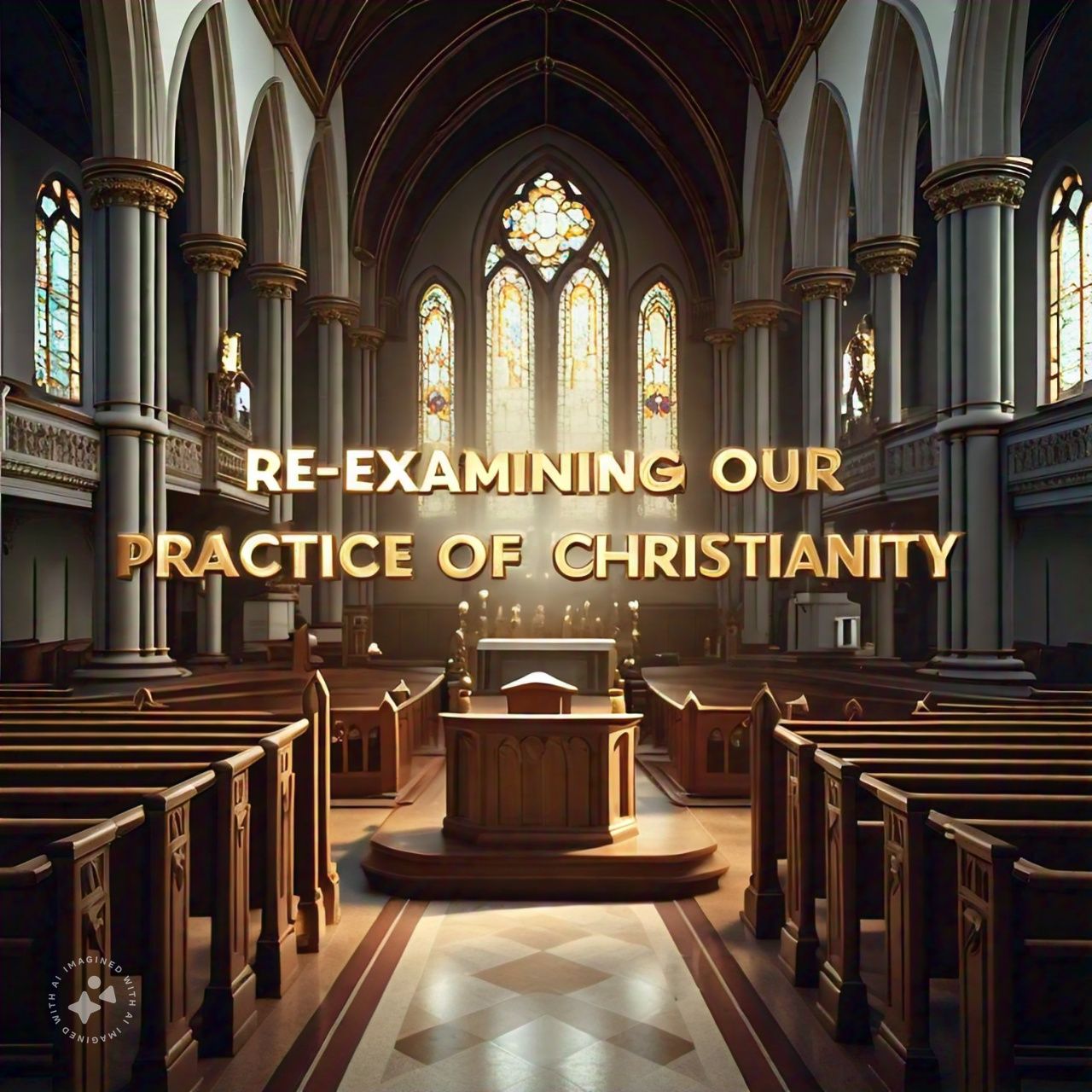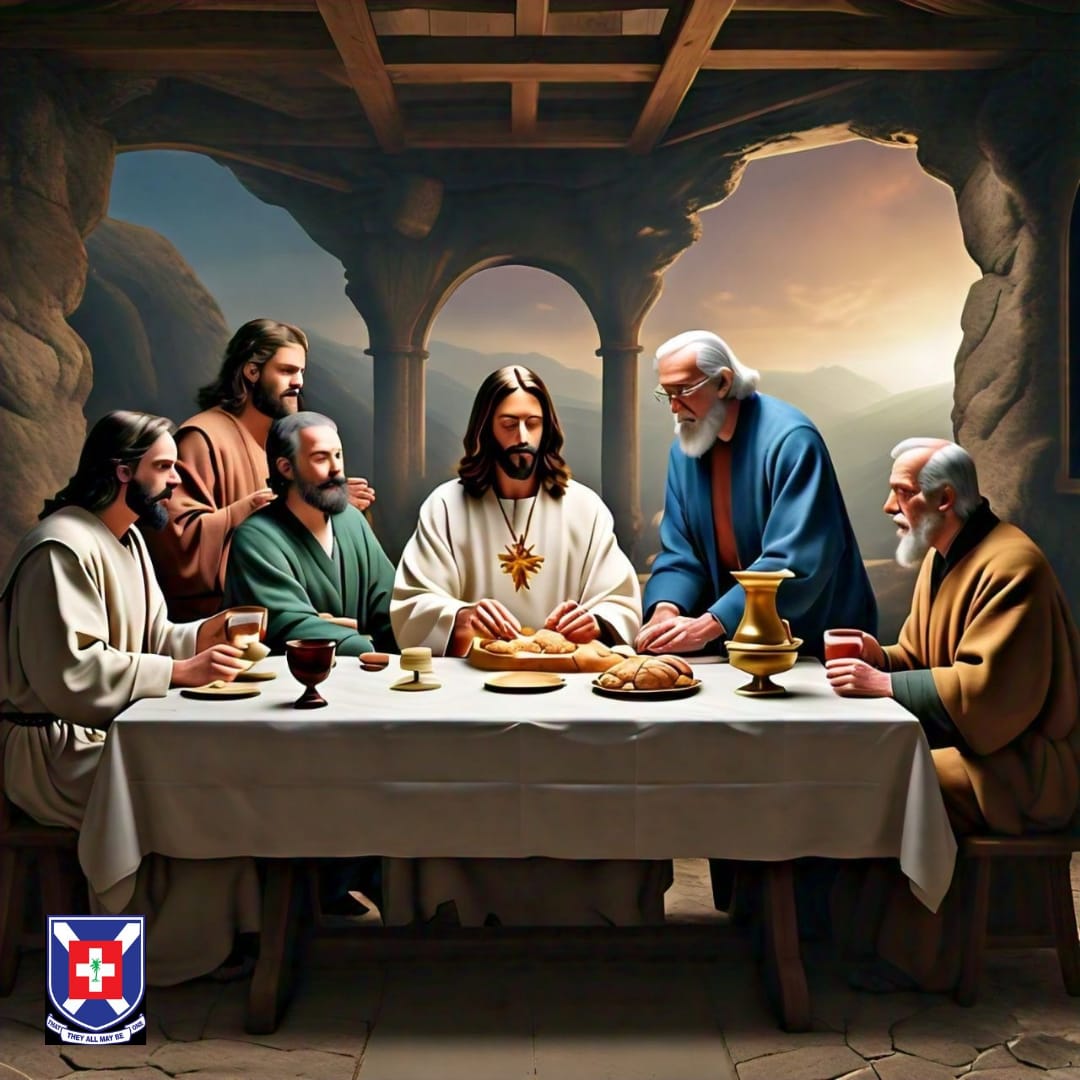
SERMON THEME: RE-EXAMINING OUR PRACTICE OF CHRISTIANITY
Scripture Sentences
1ST Bible Reading - Deuteronomy 4:1-2, 6-9
2ND Bible Reading - James 1:17-27
3RD Bible Reading
- Mark 7:9-16
Welcome the one sitting closer to you to church (Family of the Most
High God) this morning.
Let’s
say a word of prayer...
INTRODUCTION
Good morning and the Peace of God be upon You, beloved brothers and
sisters in Christ. Today, I invite you to take a journey with me, a journey of reflection
and re-examination. As we navigate the complexities of the 21st century, it is
essential to periodically pause and ask ourselves: Are we truly living out the
Christian faith in a way that aligns with the teachings of Scripture? Are we
practicing Christianity in spirit and truth, or have we allowed traditions,
routines, and external influences to obscure the core of our faith?
Our scriptures today as has been read to us, Deuteronomy 4:1-2, 6-9;
James 1:17-27; and Mark 7:9-16 all urge us to Re-Evaluate or better still Re-Examining
our relationship with God and how we live out His commandments in our daily
lives. These passages challenge us to return to the essence of our faith and to
ensure that our actions, words, and thoughts reflect the true nature of being
followers of Christ.
Deuteronomy 4:1-2, 6-9
KEEPING GOD’S COMMANDMENTS
In Deuteronomy 4:1-2, Moses speaks to the people of Israel, saying,
"Now, O Israel, listen to the statutes and the rules that I am teaching
you, and do them, that you may live, and go in and take possession of the land
that the Lord, the God of your fathers, is giving you." Moses emphasizes
the importance of obedience to God’s commandments and warns against adding to
or taking away from His Word. He reminds the Israelites to keep God’s laws
faithfully as a testimony to their wisdom and understanding in the sight of
other nations.
This message is just as relevant for us today. In a world that is
constantly changing, where cultural norms and societal values are
ever-shifting, we are called to anchor ourselves in God’s unchanging Word. Yet,
we must ask ourselves: Are we listening attentively to God’s instructions, or
have we become selective in our obedience, picking and choosing the parts of
Scripture that suit us while ignoring the rest?
Have we allowed human traditions and cultural trends to dilute the
purity of God's Word in our lives?
To re-examine our practice of Christianity, we must begin with a
renewed commitment to knowing, understanding, and obeying God’s Word. Let us
remember that God’s commandments are not burdensome but are given for our good,
to lead us into a life that glorifies Him and blesses others.
James 1:17-27
PRACTICING AUTHENTIC FAITH
The book of James provides us with a powerful and practical guide on
what it means to live out our faith. In James 1:17-27, we are reminded that
"every good and perfect gift is from above, coming down from the Father of
lights." James urges us to receive God’s Word with humility and to be "doers
of the word, and not hearers only." He warns that those who merely listen
to the Word without putting it into practice deceive themselves.
James provides a clear criterion for what true religion looks like:
"Religion that God our Father accepts as pure and faultless is this: to
look after orphans and widows in their distress and to keep oneself from being
polluted by the world."
This passage challenges us to examine whether our faith is merely
theoretical (something we profess with our lips) or whether it is
practical and transformative, impacting the way we live, speak, and treat
others.
In the 21st century, there is a temptation to reduce Christianity to
a set of beliefs or rituals, a social identity, or a weekly gathering. But
James calls us to a higher standard, a faith that moves beyond mere words into
action, a faith that is marked by love, compassion, and a commitment to
righteousness.
Are we truly caring for the marginalized and the needy in our
communities? Are we living lives that are set apart from the corruption and
compromise of the world?
Mark 7:9-16
THE DANGER OF EMPTY TRADITIONS
Lastly, in Mark 7:9-16, Jesus confronts the Pharisees and religious
leaders about their hypocrisy. He says, "You have a fine way of rejecting
the commandment of God in order to establish your tradition." The
Pharisees had become so focused on their man-made traditions that they
neglected the heart of God’s law, justice, mercy, and faithfulness. They
honored God with their lips, but their hearts were far from Him.
This passage serves as a warning to us as well. Have we allowed
traditions whether cultural, denominational, or personal preferences to take
precedence over God’s Word?
Have we become so concerned with outward appearances, rituals, or
the approval of others that we have forgotten what truly matters to God?
Jesus reminds us that it is not what is external that defiles us,
but what is internal (the condition of our hearts). We must
re-examine our practices to ensure that they align with the heart of God’s law,
which is love.
PRACTICAL STEPS FOR RE-EXAMINING OUR FAITH
How can we re-examine our practice of Christianity in a practical
and meaningful way in the 21st century?
1. Return to the Word of God: Make a renewed commitment to
studying the Bible regularly, both individually and collectively. Let us
approach the Scriptures with humility, seeking to understand God’s heart and
His will for our lives. Let us not add to or take away from God’s Word but seek
to obey it fully.
2. Practice What We Preach: Our faith must be more than
words; it must be evident in our actions. Let us examine our lives to see if
they reflect the teachings of Christ. Are we caring for those in need? Are we
showing love, mercy, and justice in our daily interactions? Let us strive to be
doers of the Word, living out our faith with integrity.
3. Evaluate Our Traditions and Practices: Take a critical
look at the traditions and practices that have become part of our Christian
experience. Are they helping us draw closer to God, or are they becoming
barriers to true worship? Let us be willing to let go of anything that hinders
our relationship with God and embrace practices that align with His Word.
4. Guard Against Worldliness: In a world that is increasingly
hostile to Christian values, we must remain vigilant in guarding our hearts and
minds. Let us be intentional about what we allow into our lives, whether
through media, relationships, or other influences. Let us seek to be holy, set
apart for God’s purposes.
5. Cultivate a Heart of Repentance: None of us are perfect,
and there will be times when we fall short. But God is gracious and merciful,
ready to forgive us when we turn to Him with sincere repentance. Let us
cultivate a heart that is quick to repent and eager to grow in Christlikeness.
CONCLUSION
Beloved, as I conclude on this theme for today, let us take to heart
the call to re-examine our practice of Christianity.
Let us return to the essence of our faith, grounded in God’s Word
and reflected in our actions. Let us be doers of the Word, living out our faith
in love, humility, and obedience.
May we resist the temptation to conform to the patterns of this
world or to settle for empty traditions. Instead, let us pursue a vibrant,
authentic, and life-transforming relationship with Jesus Christ.
Final Thought/Words
A CALL TO AUTHENTICITY
As we leave here today, let us remember that our faith is not just a
matter of what we believe but of how we live. May our practice of Christianity
be genuine, reflecting the heart of God to a watching world. May we be a people
whose lives testify to the goodness, grace, and truth of our Savior, Jesus
Christ. Amen.
Let’s take some few minutes to reflect on what we all have heard in
silence
Let’s pray!
The Apostle Creed




